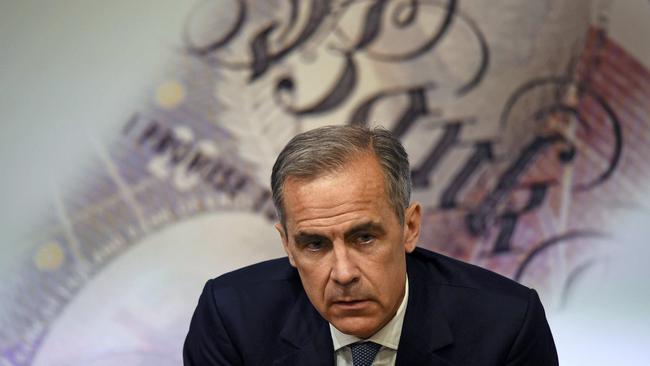Bank of England cuts rates to record low
The Bank of England has cut its benchmark interest rate to a new low last night.

The Bank of England cut its benchmark interest rate to a new low last night and said it would buy government and corporate bonds as part of a broad package of measures to stimulate the British economy in the wake of the Brexit vote.
The BoE cut its main interest rate to 0.25 per cent, from 0.5 per cent, marking a low in the central bank’s 322-year history and the first cut in rates since 2009.
It also revived its long-dormant government bond-buying program, announced it will start buying corporate bonds in September, and said it had lined up billions of pounds in ultracheap four-year loans for banks to fuel lending.
“The outlook for growth in the short to medium term has weakened markedly” following voters’ decision to leave the European Union in a referendum June 23, the central bank said. The BoE slashed its forecast for growth next year to just 0.8 per cent, from 2.3 per cent previously — its biggest ever downgrade between two sets of quarterly forecasts.
Officials also said they expected to cut the benchmark rate closer to zero later this year.
The multipronged stimulus underscores the central bank’s deep concern over the potential cost to the economy from the Brexit vote.
Officials said they expected the British economy to be 2.5 per cent smaller in three years than they forecast before the referendum, reflecting not just a near-term slowdown but also weaker growth in the economy’s capacity to produce goods and services as investment declines.
It also marks a reversal for the BoE — which before the Brexit vote had been expected to follow the US Federal Reserve in raising interest rates later this year — and represents a setback for a fitful global economy.
The BoE forecast that British imports from the rest of the world will fall in 2017 and 2018.
The BoE said that alongside a rate cut it would engage in another round of quantitative easing, or printing money to buy assets. It said it would purchase £60 billion ($104bn), taking total purchases to £435bn from £375bn of British government bonds over the next six months, a policy aimed at lowering long-term interest rates to keep a lid on borrowing costs for households and businesses.
It said it would also purchase £10bn of corporate debt over 18 months, beginning next month, to further reduce borrowing costs in the hope of fuelling business investment.
It also said it would offer banks cheap four-year loans through a new term-funding scheme, or TFS. Lower interest rates tend to hurt banks by squeezing their profitability. The aim of the TFS is to offset that squeeze by providing a source of cheap funding.
The central bank said the sharp fall in the pound since the Brexit vote and the stimulus it had announced last night would drive annual inflation back to its 2 per cent target by next year.
Its forecasts show inflation will then temporarily overshoot its goal in 2018, reaching 2.4 per cent, but officials said that was a temporary price worth paying to keep the economy on track.
The BoE’s various policy decisions did not gain unanimous support among the nine members of the central bank’s Monetary Policy Committee. All nine officials supported a rate cut but three voted against new bond purchases, saying it was too early to tell whether the economy was weak enough to justify such a measure.
“The double dose of monetary stimulus, with rate cuts accompanied by quantitative easing, will help ease investors’ jitters,” said Nancy Curtin, chief investment officer at Close Brothers Asset Management. She warned, however, that “monetary policy cannot do all the heavy lifting, and the market will look to fiscal policy to boost UK growth amid ongoing post-referendum uncertainty”.



To join the conversation, please log in. Don't have an account? Register
Join the conversation, you are commenting as Logout